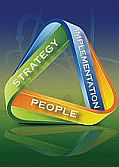Speaker
Yoko Kawakubo
(Japan Atomic Energy Agency)
Description
Nuclear transparency is defined as “a cooperative process of providing information to all interested parties so that they can independently assess the safety, security, and legitimate management of nuclear materials” by Sandia National Laboratories (SNL). Since the Asia-Pacific region has a broad spectrum of nuclear development underway and planned in the future, nuclear transparency is recognized as essential to provide additional assurance and enhance confidence building in this area. It is expected that elevated nuclear transparency should also supplement International Atomic Energy Agency (IAEA) safeguards.
With this recognition, JAEA has committed various studies and activities for enhancing regional nuclear transparency mainly with U.S. Department of Energy (DOE) and its national laboratories. The efforts include concept study, development of secure data transmission technologies at the Experimental Fast Reactor ‘Joyo’ for the use of regional nuclear transparency, and support for Council for Security and Cooperation in Asia Pacific (CSCAP) to develop internet-based transparency tools. JAEA also organized several workshops to discuss with stakeholder organizations to build acceptance for transparency tools and activities.
Based on the past studies, JAEA, jointly with SNL, Korea Institute of Nuclear Nonproliferation and Control (KINAC) and Korea Atomic Energy Research Institute (KAERI), initiated a new phase of study in 2011 to design and establish an Information Sharing Framework (ISF) which was defined as “a communication platform on which nuclear non-proliferation experts can provide and/or receive relevant information in a practical and sustainable manner”. During the period of two-year study, partner organizations identified essential elements to establish ISF and developed the requirements. Currently, JAEA and KINAC are planning to implement demonstration of ISF under Asia Pacific Safeguards Network (APSN) as the next step.
This paper describes the past studies and activities in JAEA for enhancing regional nuclear transparency and discusses the future prospect.
| Country or International Organization | Japan |
|---|
Primary author
Yoko Kawakubo
(Japan Atomic Energy Agency)
Co-author
Hirofumi Tomikawa
(Japan Atomic Energy Agency)

